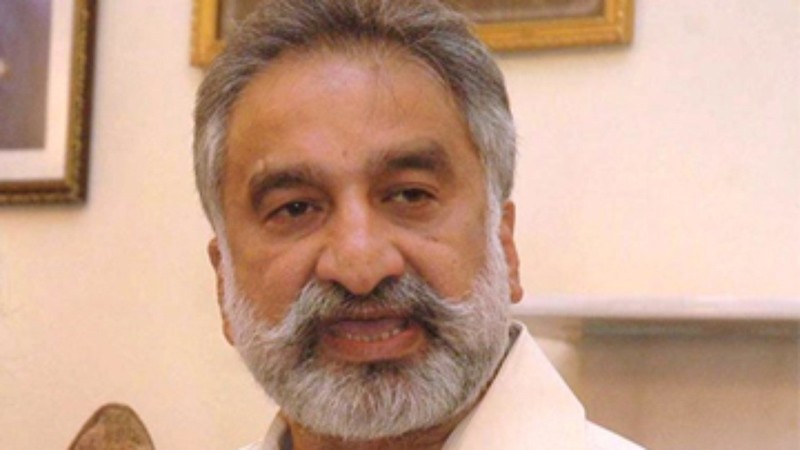
In phase two of the LG polls in Sindh, the PPP remains an unchallenged political force, with the exception of a setback in Badin district

In the second phase of the local government polls held on November 19, the Pakistan People’s Party (PPP) has secured an expected victory in 13 out of 14 districts. However, the party faced tough resistance in Badin where its former leader Dr Zulfiqar Mirza and his family won half the local government seats.
The PPP has successfully conquered the strongholds from its opponents in Tharparkar, Thatta, Dadu, Naushahro Feroze and Umerkot. However, the Mutahida Qaumi Movement (MQM) has managed to win some districts of Hyderabad and Mirpurkhas.
In this phase, around 5.8 million voters in 14 districts of Sindh province voted for over 18,000 candidates contesting for more than 5,100 constituencies for various tiers of the local government bodies. The districts include Hyderabad, Tando Mohammad Khan, Tando Allahyar, Matiari, Dadu, Jamshoro, Badin, Thatta, Sujawal, Mirpurkhas, Umerkot, Tharparkar, Naushahro Feroze and Benazirabad (Nawabshah).
The Election Commission of Pakistan (ECP) postponed the polls in district Sanghar for security reasons. An ECP official says, security situation was not suitable for polls as, during the first phase of the LG elections held on October 31, violence in district Khairpur’s Daraza union killed 11 people, most from the Pakistan Muslim League-Functional (PML-F). "Sanghar is a stronghold of the PML-F and to avoid a violent situation there, we postponed the polls," he says.
The ECP also postponed the polls in 81 union committees in all districts citing delimitation issues.
Similar to its overwhelming victory in the first phase where it won in eight districts of Northern Sindh, in the second phase the PPP has remained an unchallenged political force, with the exception of a setback in Badin district.
The group led by Zulfiqar Mirza, a former provincial home minister, a close aide of Zardari, and husband of Fehmida Mirza, a PPP MNA and former speaker of the National Assembly, has won half of the local government seats in Badin by defeating PPP candidates. Results show that the whirlwind electioneering tour of Badin by PPP Chairperson Bilawal Bhutto Zardari was totally unsuccessful in countering Mirza’s influence. Mirza could well be affecting the politics of other parts of Sindh in near future as well.
The PPP’s performance in districts other than Badin was impressive where they defeated their traditional opponents. In Tharparkar district, the party defeated the dominant group led by former chief minister Arbab Ghulam Rahim, currently associated with the PML-N. The Arbab group has made a local alliance with the PML-F and Ghousia Jamaat of the PTI leader Shah Mehmood Qureshi.
The PPP was able to beat a political alliance led by former chief minister Liaquat Jatoi in Dadu district. The Jatoi group took away 11 out of 66 council seats with PPP winning the rest.
In Naushahro Feroze district, the PPP crushed the influence of the local Jatoi family, whose members won one National Assembly and two provincial assembly seats in the 2013 general elections, and before it ruled the district twice in the Pervez Musharraf era. Later, they merged their party National People’s Party with the PML-N. However, in the recent LG polls, the PPP won 37 out of 56 UCs of the district.
Similarly, the ruling party defeated the powerful Shirazis, who are associated with the PML-N, in Thatta and Sajawal districts.
The PPP swept the LG polls in Tando Mohammad Khan, Tando Allahyar, Matiari, Jamshoro, Umerkot and Benazirabad.
In Mirpurkhas, the PPP will easily make the district chairman while the MQM will get the municipal committee.
The MQM secured inspiring victory in the Urdu-speaking urban areas of Hyderabad. In Hyderabad Municipal Corporation, the MQM would comfortably get its mayor and deputy mayor elected while in Hyderabad district council, the PPP will get its chairman.
Almost all rival political groups have alleged that the PPP-led Sindh government manipulated the first phase of the election process and demand that the LG polls be held again in Sindh under army supervision.
On November 21, all key groups gathered at Arbab Rahim’s house to form a strategy to launch an anti-rigging protest. "PPP, using the government resources and pressure, massively rigged the LG polls in both phases in the province," says Rahim.
Although the PPP leaders term the results as a candid manifestation of people’s trust in the party leadership, political analysts believe several factors have helped the PPP to win the polls, and not just electorate’s emotional ties with the party.
Abdul Sattar Zangezo, a political analyst who has covered the LG polls in Sindh extensively, says besides the usage of government power in the polls, non-availability of a strong political alternative force is also a key factor behind the PPP victory. "Sindh’s residents are frustrated with the PPP because of its pathetic performance and allegations of corruption. But performance of other parties, such as the PML-N, PML-F or PTI is also unsatisfactory."
Also, some analysts consider Mirza’s victory an emerging trend affecting Sindh’s politics. "Unlike Rahim, Jatois and Shirazi, who are mainly involved in traditional politics on the basis of ‘outside’ support, Mirza took a firm and brave stand and mobilised the constituents of Badin against the PPP," says Amjad Khaskheli, a Karachi-based political activist.